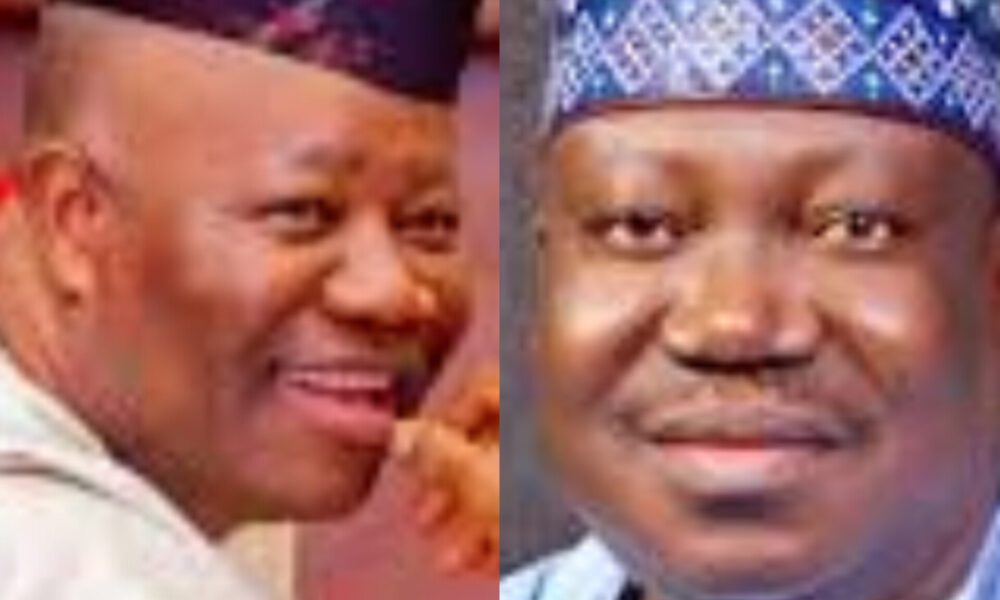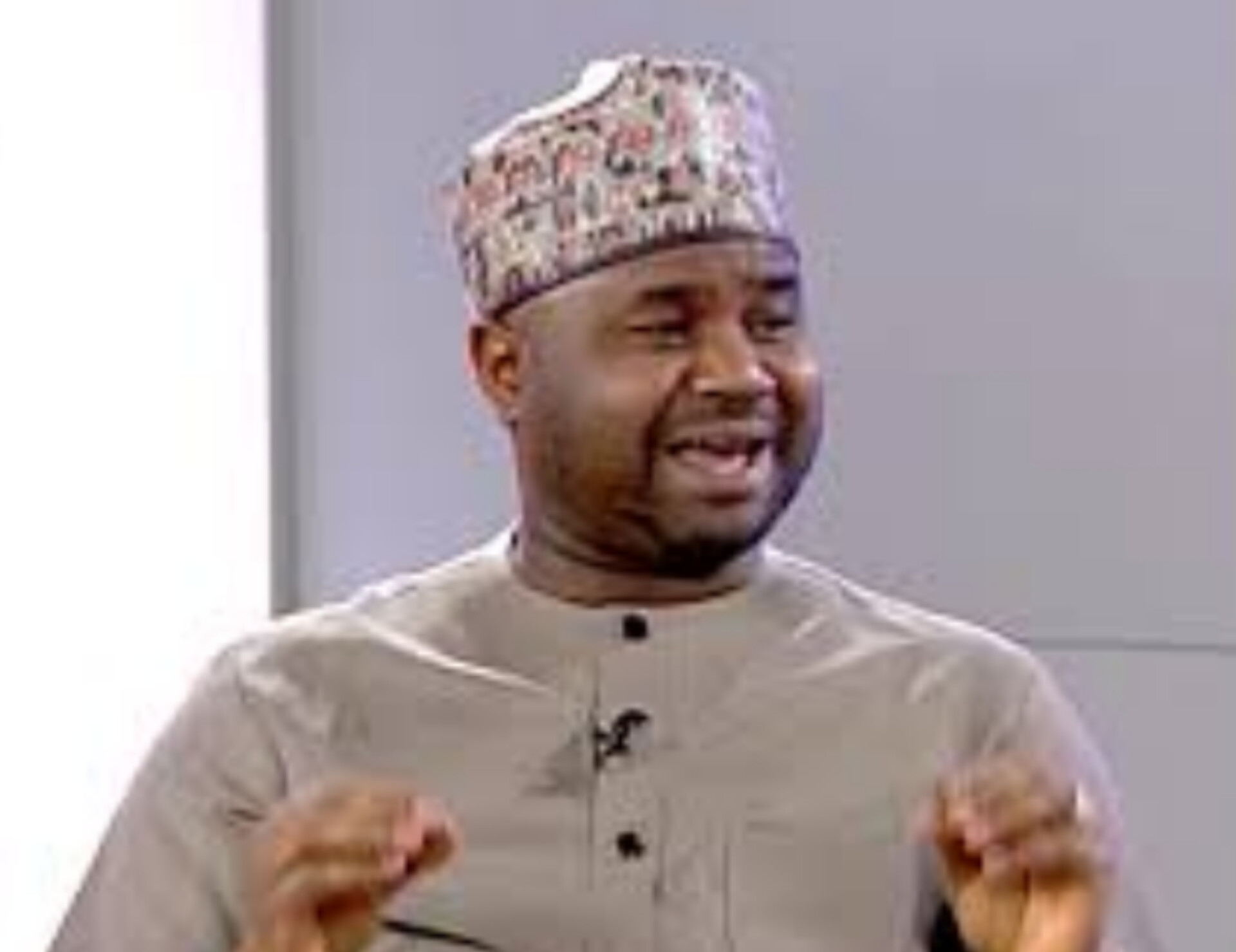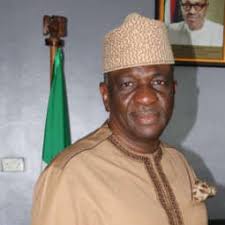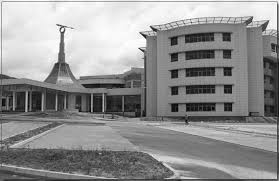***As Lawan disagrees with Akpabio over alignment with Reps
The 10th Senate on Thursday acknowledged its greatest shortcoming of Commencing plenary behind schedule thereby trampling on its standing rule that stipulated 10am as the time for commencement of sitting.
The Senate Leader Opeyemi Bamidele had raised two motions at the commencement of plenary, on one hand he proposed amendments to the standing rules in respect to amendment of order 8(2) which has to do with sitting of the Senate as it is proposed on Tuesdays, Wednesdays and Thursdays for the Senate to shift it from 10am to 11am

The leader also moved his second motion on Standing Committees
Amendment of order 96 inclusion of 58 which is to create the Senate Committee on Reparation and repatriation.
However, the second motion was stepped down as senators opted to debate on the issue of sitting time.
While lending his voice to the issue Senator Akpabio had indicated that the most urgent motion is to align the time of resumption with what obtains in the House of Represntatives.
He suggested that the motion should be separated and that the first one to be taken should be the time of sitting.
Immediate past President of the Senate, Ahmed Lawan while making his contribution disagreed with Akpabio saying, “I don’t know the basis at the moment for which we want to shift our sitting from 10 to 11 and end at 3pm, for me, we have more energy, our eyes are clearer in the morning and one hour into the day, probably we would have lost some energy.
“If we work between 10am and 2pm, if we seat in the plenary between 10am and 2pm, our committees would do better. If we don’t have any reason except we have to synchronize with the house, I think we need to look at it again. But if we have other reasons that we must change that is fine. If it is just to synchronize the House may have their reasons for sitting at 11 and close by 3 but here I don’t see the reasons.
Responding Akpabio threw it back at Lawan that the idea of the Senate sitting by 11am started during his time as the Presidwnt of the 9th Senate especially during the period of the covid.
Explaining further, Lawan said it was as a result of the dreadful COVID-19 the time was tinkered with from 10am to 11am adding that they had to cut down on the number of days for plenary.
Akpabio retorted saying, “Our rules said 10am but we came to meet the tradition of 11am, the only thing that we changed was to add additional day because during that COVID-19 period we were sitting twice a week.
“I said no, since there is no more COVID we should sit three times in a week and we maintained what we saw, 11am but now we are.saying that we have not been able to justify the 11am sitting unless it reflects same on our rules.
“The Idea of 3pm in my view is not correct because it does not mean you must sit till 3pm. It simply means if we don’t have musc to do we can Close at 1pm or 2pm to enable our colleagues to go for committee sittings and other matters related to the proceedings of the Senate such as clearances and all that.
“The only aspect of it is to legalise it so that people dint have the impression that you are sitting at 11am while the rule says 10am.
The Senate Leader again said,
“I want to make a very passionate appeal to our colleagues, for me I believe the issue should go beyond trying to reconcile with the house of representatives, the logic is that a lot of times, distinguished senators have reasons to go to bed late and there is no point having in our rule book that our sitting time is 10 am, and everyday we sit at 11’o clock.
“Of course there are some distinguished senators who would be here 10 for 10 but there have been a lot of time where even you Mr. President at 11or 10:30 and we have to wait for some of our collegaues to come so that we could form a qorum , it is important that we work our talk.
“If our rule had said 10 am and we have not been able to seat 10am for 10am, I think what is most important is that if we say 11am, it should be 11’oclock.
“I think it makes sense that we amend our rules to read 11’o clock rather our rule book saying 10 am and we don’t seat until 11, for me this is the basic justification.
After going into into close session at the instance of Akpabio so that members of the public will not misunderstand them they return to support the motion which stipulates that plenary session will now commence at 11am.
Before now, according to the Senate Standing Rule, plenary starts at 10 a.m. on every legislative day.
Rule 8 (2) of the Senate Standing Rule (as amended) states: “On Tuesdays, Wednesdays and Thursdays, the Senate shall meet at 10:00 a.m. and unless previously adjourned shall sit until 2:00 p.m., unless before a substantive motion had been moved by the Leader of the Senate or a Senator acting in that capacity “that this Senate do now adjourn” and if such a motion be moved and if the question thereon has not previously been determined, at 2:00 p.m. the President of the Senate shall adjourn the Senate without question being put.”
However, because the senate president who presides over the sitting was in the habit of arriving late, the plenary had always begun much later. As a result of the tardiness, many Senate committees have had to postpone important meetings because the Senate plenary ended late in the evening.




